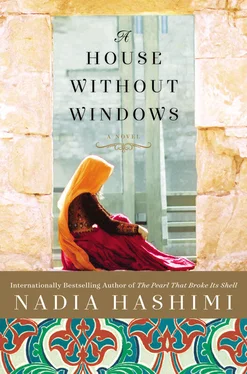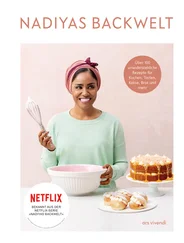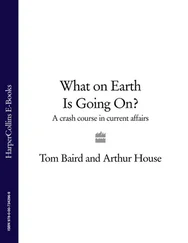Another dodge.
“Has anyone told you what happened?”
Yusuf shook his head and frowned.
“Not yet. If you have something to share, I’d be very interested to hear it. Did you know the man who was killed or his wife?”
“I know everyone who eats almonds and raisins.”
“I’m sure you do. What did you think of him? God forgive his soul,” Yusuf added to play it fair.
“Yes, God forgive his soul,” Walid echoed, blankly. “He was a lucky man. He had a wife and children. His eldest son is a good boy — looks after the family even now that the mother is gone.”
“You’ve seen the children lately?”
Walid nodded.
“I saw them two weeks ago. They’re with their father’s family. They look well enough.”
Yusuf could pass this along to Zeba. It wasn’t much, but he was certain she would be grateful for any news about her children.
“That’s good. They’ve been through a lot, those poor children. They’re missing two parents now.”
The raisin vendor nodded and gripped the handles of his cart. He leaned in as if about to push off then thought of something else and stopped.
“What kind of truth are you looking for?” he asked.
Yusuf was surprised by the question.
“Just the truth. I want to know if she was really responsible for killing him. I want to know if she deserves the punishment that she’ll get if the judge believes she’s guilty.”
“They’ll kill her, won’t they?”
“Maybe.”
“How can you say maybe? Why wouldn’t they kill her?”
“There’s always a possibility she didn’t do it, I suppose. And even if she did do it, maybe there was a reason that we’re not aware of.”
“A reason.”
“Yes, a reason.”
“What reason do you think?”
“I think I came all this way to ask questions because I don’t have all the answers.”
A street mutt scampered past them. The sound of boys playing rose from the distance. The dog’s ears perked and he ran off in the opposite direction with the fearful look of the abused. Yusuf was getting the distinct feeling that he was not in control of the conversation.
“Of course you have questions. Everyone does. No one can imagine why a decent woman would do such a thing,” Walid said, shifting his weight on his feet.
“Exactly.”
“What did her neighbors have to say about it?”
“I’m surprised you don’t know what her neighbors are saying about it.”
“I don’t hear everything,” he admitted as if it were a personal shortcoming.
“They didn’t say much. Seems that no one wants to talk about it.”
“I’m sure you found someone to talk to. The old woman down the road from them always has something to say, even if it has nothing to do with anything.”
Yusuf felt a tickle on the back of his neck.
“You saw me yesterday.” It was a question disguised as a statement.
Walid was silent. He held Yusuf’s gaze, which was all the confirmation he needed. Yusuf opened the paper bag, peered inside, and shook it slightly to rearrange the almonds. He plucked two out and held them in his palm.
“She said Zeba was a nice woman. She seemed to think it was a shame when family matters spilled into the street.”
“Spilled into the street?”
“Yes.”
“I think the street spilled into their home, to tell you the truth,” Walid quickly replied. There was the hint of indignation in his tone.
“What do you mean by that?”
Walid took a deep breath and straightened a bag of walnuts that was threatening to topple over.
“Akh, nothing. Just that. . nothing really. But there were so many people in that home after the shouting. Everyone came running over to see what had happened.”
“Were you there that day?”
“In their home?”
“Yes. I hear lots of people rushed in. Were you one of them?”
Walid shook his head.
“I didn’t go in. My job is in the street so I stay in the street. I know my place.”
“Weren’t you curious to find out what had happened?”
Walid wiped his forehead with the back of his hand.
“I’d heard enough.”
“Enough that you didn’t need to see it with your own eyes,” Yusuf surmised.
Walid squinted. The two men were figuring each other out.
“You don’t sound like you think she’s a killer. Your questions are different. Are you her lawyer?”
Yusuf casually tossed the two almonds into his mouth. Toasted by the sun, they were indeed delectable.
“I am,” he admitted.
“I heard she confessed to killing him.”
“I wouldn’t say that.”
“What would you say?”
“That there are lots of things that don’t make sense and there is something about her that makes me very concerned. She’s not been well since she’s been in the prison.”
“Not well?”
“My friend, sometimes people under a great deal of stress become fragile. Sometimes they start to come undone.”
“What does that matter? If she killed him, she killed him. Who cares if she’s upset?”
Walid was becoming tense. His breathing was laborious, nostrils flaring a bit.
“Well, I don’t think she’s in her right state of mind, right now. And I’m also wondering if she wasn’t in her right state of mind at the time that her husband was killed.”
“So you do think she killed him.”
Yusuf smiled and shook his head.
“No, I didn’t say that. Even if she did, it’s not right and it’s not legal to convict someone of murder if she’s crazy.”
Walid looked at him skeptically.
“The things you’re saying. You’re not making any sense.”
“It’s the law,” Yusuf explained. “The law of this country states that she can’t be guilty of a crime if she was insane at the time it happened.”
“That can’t be true.”
“It’s true. It’s written into the judicial codes that govern this country. We have to respect that. But tell me, Agha Walid, tell me about the man who was killed. Did he prefer walnuts or almonds?”
Walid snickered, both at the notion that a single set of codes could govern this whole country and at the young lawyer’s odd question. His snickers turned into a rattling cough. Yusuf waited for him to catch his breath and continue.
“He was a man with peculiar tastes — nothing I could offer him.”
“What do you mean by peculiar?”
Walid shrugged his shoulders.
“Since he didn’t care much for what I had to sell, I don’t know.”
Walid looked down the road. A mother carried a little girl in her arms. The child was probably old enough to walk but not quickly enough to keep up with her mother’s pace. For now, she would be carried safely.
TALKING ABOUT WHAT HE’D SEEN WOULDN’T DO ANY GOOD, Walid knew. The best thing for that poor little girl would be for no one to know what had happened, not even her parents. Walid had five children of his own, two of them girls. They were much younger than the girl he’d seen that day, but it still gave him chills.
If only he’d chosen a different route that day — he’d be a much happier man right now. As it was, he hadn’t been sleeping very well lately. His wife, after hearing him recount that day’s events, shook her head and looked at him with disappointment. She’d pulled their two- and four-year-old daughters closer to her, a gesture that had angered him. Was she pulling them away from him? He wasn’t the dangerous one.
What was I supposed to do? He was just talking to her!
Walid. She was just a girl. And now that poor woman. .
Walid was smart enough to know what he was and what he wasn’t. He was a simple man who sold nuts and fruits. He worked with his back and his hands to make barely enough to feed his family. He was no oracle. He was no authority figure. He resented his wife for implying he could have done something more even when that very thought had nagged at him since that awful day. If he hadn’t known what was to happen, why had the hairs on the back of his neck stood at attention to hear that man speak to the girl?
Читать дальше











